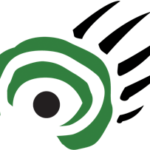As the designated “Indigenous Liaison” for CPAWS-Saskatchewan, I was asked to write a piece to celebrate Indigenous History Month this June. I must admit, at first, I was a bit stumped as to how I would convey the importance of this event and intimated on how to explain that working with indigenous peoples has helped to shape my life.
I grew up in Calgary, Alberta, the ‘heart of the west’ and a city filled with conservatives. As I made my way through school, I had a fondness for animals and decided that I would pursue a career in veterinary medicine. This path led me to seek an undergraduate degree at the University of Saskatchewan, with the goal of entering veterinary medicine upon completion of my undergrad. In my last semester, my desire to become a veterinarian waned, and I was lucky enough to stumble across the School of Environment and Sustainability, at the University of Saskatchewan.
After deciding to pursue a master’s degree in this school, my supervisor left it up to me to decide what to explore for my thesis, as long as it involved forests or sustainable forest management. Within the first couple of months in the program, I struggled to select a topic and the thought that I had made a mistake taking this path crossed my mind a few times.
Fortunately, an invitation to join a meeting for the Prince Albert Model Forest changed my life for the better. During this meeting, I met an indigenous man from Beardy’s and Okemasis Cree Nation, who openly shared his experiences and stories with me. I was intrigued and awed by his openness to share, and his passion brought tears to my eyes. I decided then and there that I wanted to learn more and break out of the bubble of privilege and ignorance that I had been living in most of my life.
Fast forward a number of years to today. I have been working for CPAWS-Saskatchewan for almost 4 years, and also manage the Prince Albert Model Forest. Working in the non-profit world has change my perceptions and experiences in the environmental field and a big part of that has come from the work I do with Indigenous peoples. I have had numerous opportunities to work directly with Indigenous communities, from participating in caribou themed youth canoe trips to assisting in fieldwork using trail cameras, working towards Indigenous Protected and Conserved Areas, and so much more.
To just say that working with indigenous communities is ‘very important’ in an understatement. Working with indigenous communities is essential for the long-term health and success of conservation and land protection.
Many Indigenous peoples’ carry a long history of their land, in the form of traditional or indigenous ecological knowledge. This knowledge is invaluable and helps Indigenous peoples understand the world in a holistic way. Unfortunately, this knowledge is often not prioritized or is valued below western science, as its often seen as unverified or qualitative in nature.
For example, western science tells us that woodland caribou habitat that has recently burned will not become habitat for the caribou for another 30-40 years. However, the people who live on the land, have explained to me that they see caribou return to a burned area many years before then, as pockets of the caribou’s preferred food source (lichen) still exist after a fire. Acknowledging this information as valid is vital when creating an effective plan for woodland caribou recovery, as much of the planning process involves the identification and management of critical caribou habitat.
Although the use of traditional knowledge is often intimidating to researchers, planners and policy makers, acknowledging the value of this knowledge and actually using it to help develop plans, legislation and policies is critical towards not only successful environmental work but putting reconciliation into action.
One topic I would like to touch on is this term ‘reconciliation’. I call it term for a lack of a better word because it is often used as a token word, a word to the ‘check the box’ and a word that is often not followed by actions. Understanding what reconciliation truly means has personally taken me a lot of time and experiences, and I am still learning more about it.
I have learnt that reconciliation means learning the hard truths about how indigenous peoples were treated in the past and acknowledging that those issues still exist today. It involves a deep introspective of your personal biased views and perceptions, and a willingness to change and open your heart.
Moreover, incorporating vulnerability into the search of the meaning of reconciliation has allowed me to build long lasting meaningful and reciprocated partnerships, relationships and friendships with Indigenous peoples and communities. This in turn has led amazing opportunities to work collaboratively on and participate in various environmental, social and cultural initiatives.
I would like to leave a statement to those who are hesitant or unsure about working with indigenous peoples: working with Indigenous peoples has changed my life. Opening your minds and perceptions will lead to exciting experiences and meaningful work and in the process, you will not only gain additional knowledge and ways of looking at the world, but you will also make new friends and gain a new family.
